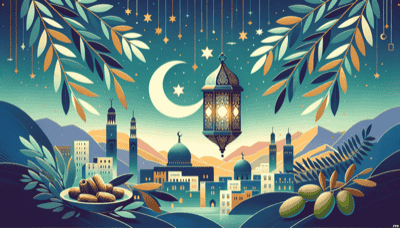We're here to help you keep count of the days to or since a date. Just click the button below and enter your chosen date to get started. Also choose the suggested days or search for a special day above #countingthedays

In Morocco, Hijra New Year, also known as Islamic New Year or Al-Hijra, marks the beginning of the Islamic lunar calendar year. This day commemorates the Prophet Muhammad's migration (Hijrah) from Mecca to Medina in 622 CE, an event that led to the establishment of the first Muslim community and eventually the Islamic state.
The Hijra New Year falls on the first day of Muharram, which is the first month in the Islamic calendar. Since the Islamic calendar is lunar-based, the date varies each year when compared to the Gregorian calendar.
The historical significance of Al-Hijra is profound for Muslims, as it represents a turning point for Islam and its followers. It signifies a moment of transformation and renewal, where Muslims reflect on their faith and life journey.
On this day in Morocco:
Religious Observance: People engage in special prayers and religious activities. It's a time for reflection on one's faith and personal growth.
Cultural Practices: While it's not celebrated with as much fanfare as other Islamic holidays like Eid al-Fitr or Eid al-Adha, some Moroccans might attend lectures or events focused on historical and religious teachings related to Al-Hijra.
Public Life: The Hijra New Year is recognized as a public holiday in Morocco; however, it's more of a quiet observance with government offices and businesses often closed.
Charitable Acts: Giving to charity and helping those in need are encouraged as part of personal reflection and communal responsibility.
Family Gatherings: Some families may come together for meals or to discuss the new year’s significance.
Overall, while not marked by large-scale celebrations like other holidays in Morocco, Hijra New Year remains an important time for spiritual renewal and contemplation among Moroccans.